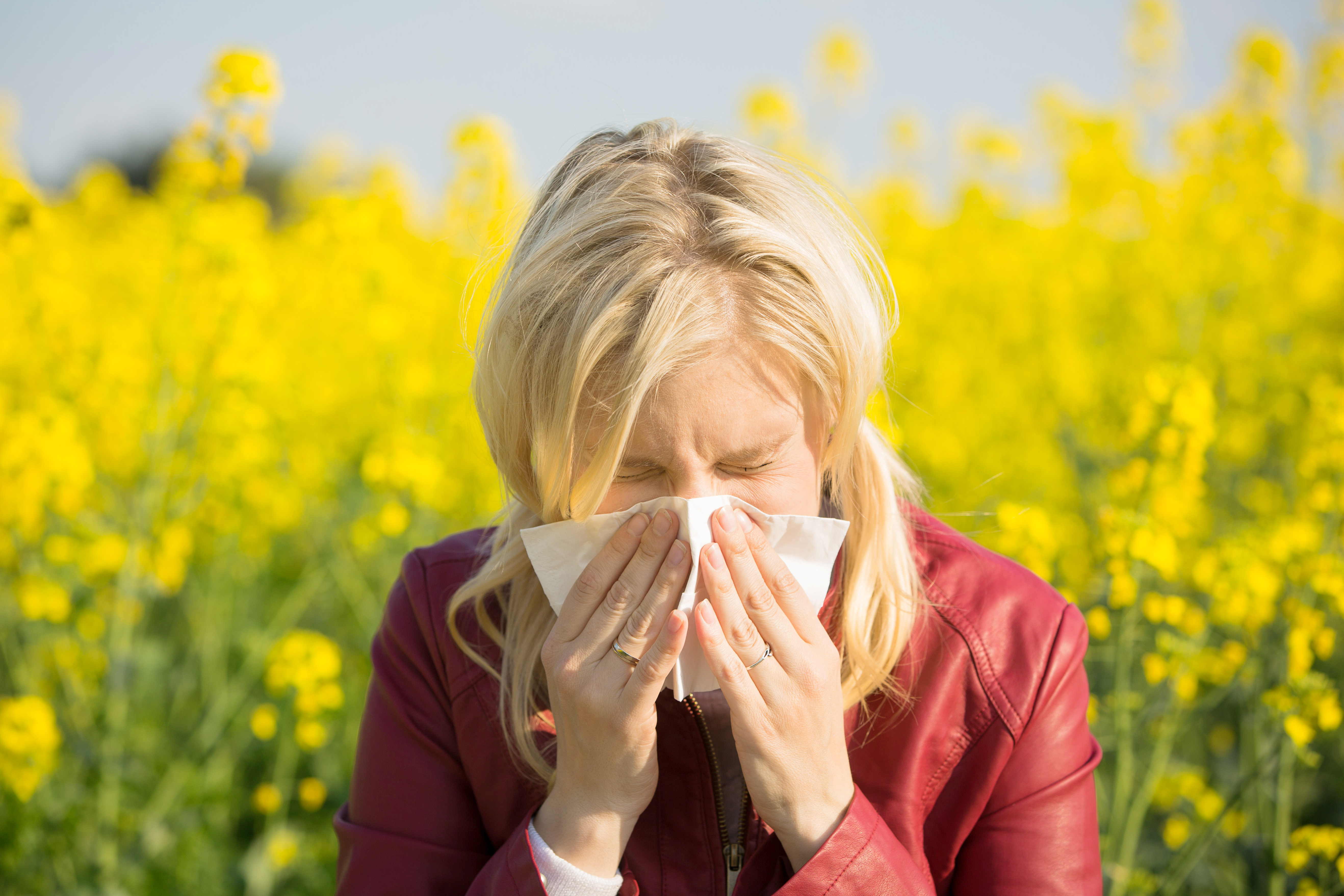 Spring is upon us, and that means that allergy season is once again here in New England.
Spring is upon us, and that means that allergy season is once again here in New England.
As the warmer weather beckons folks to head outdoors, allergies often heat up when allergens such as grass, mold and ragweed pollen bring on symptoms like watery, itchy eyes and sneezing. More serious dangers lurk outside for those who are allergic to stinging insects.
In addition to pollen and insect stings, there are other substances which can trigger an allergic reaction including:
- Dust mites • Mold spores
- Food • Pet dander & insect droppings
- Medicine • Latex
What causes allergies?
Your body’s defense system – the immune system – has one main purpose: to fight germs. An allergic reaction is your immune system’s response to a certain trigger. What can bother one person, doesn’t always bother another. People who have allergies are often sensitive to more than one trigger. Genetics and the environment can both play a role.
Allergy testing: Is it right for you?
It may seem that discovering what you are allergic to is a guessing game. However, testing performed by an allergist can diagnose what does and what does not trigger your symptoms. For example, you don’t have to get rid of your cat if it is actually mold that is causing your itchy eyes and throat!
Types of allergy tests
Skin and blood tests, combined with a physical exam and medical history of your symptoms, can safely diagnose allergies and determine what triggers your symptoms.
- Skin tests: This is the most common kind of testing. In this test, a small amount of allergen is placed on your skin, and this area is pricked or scratched. If you are allergic, you’ll experience a little swelling at the site of the prick test. Results of this test are usually available within 15 minutes.
- Intradermal tests: Intradermal tests are more sensitive than prick tests, and may be used when prick test results are inconclusive. In this test, your allergist will use a syringe to inject some allergen under your skin.
- Challenge tests: Challenge tests are sometimes used when a doctor suspects you have a food or drug allergy. In this test, patients eat or inhale a very small amount of possible allergens under the close supervision of an allergist. (Do not try this test at home.)
- Blood tests: For this test, blood is drawn and then tested for allergies.
Once you know exactly what you are allergic to, a treatment plan can reduce or eliminate your allergy symptoms. Treatments can include medicine, allergy shots, and recommendations to avoid the substances that cause the allergic reaction. Many people with untreated allergy symptoms aren’t aware of how much better they can feel once their symptoms are properly diagnosed and managed.
Allergies can cause a variety of minor to severe symptoms such as:
- Itchy eyes, nose and throat
- Nasal congestion, runny nose or sneezing
- Asthma
- Watery eyes
- Hives, rashes, itchiness or other skin conditions
- Swelling
- Abdominal pain or diarrhea after eating certain foods
- Severe reactions to insect stings
- Anaphylaxis which can be life-threatening
Sources: NIH: National Institute of Allergy and Infectious Diseases and American Association of Asthma Allergy and Immunology
